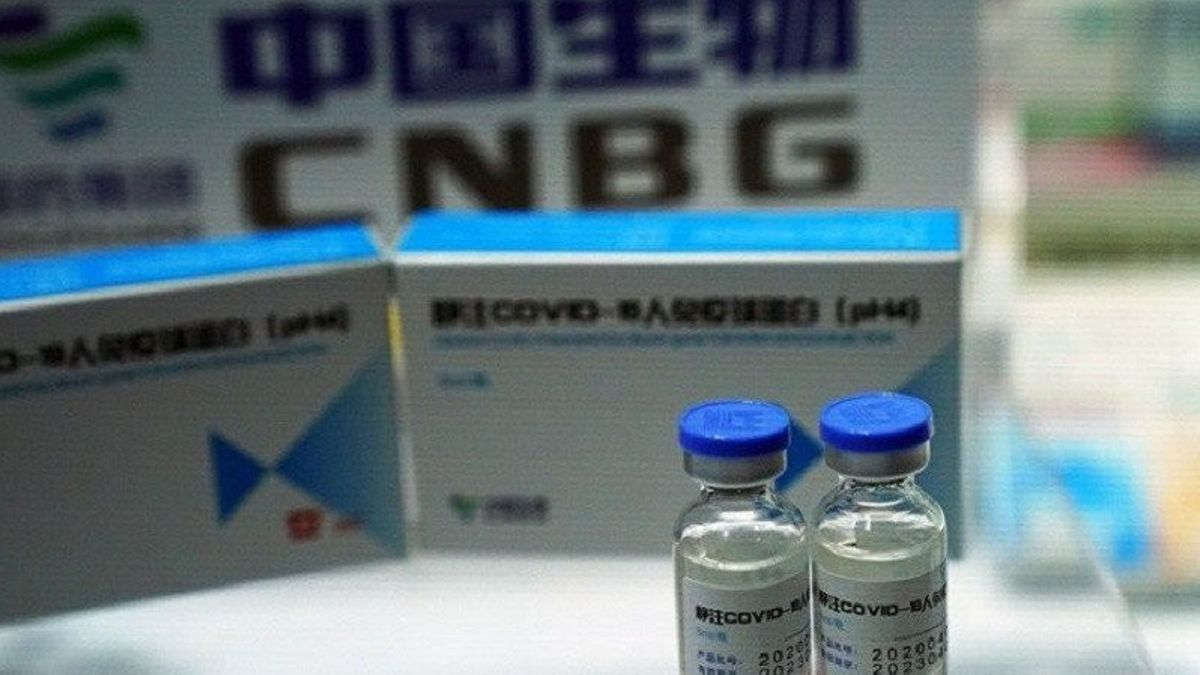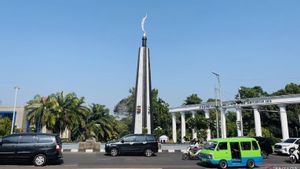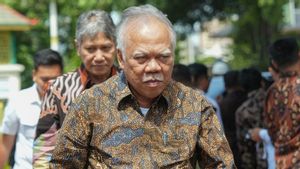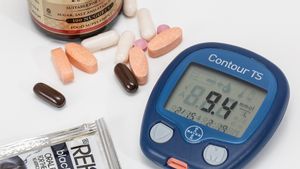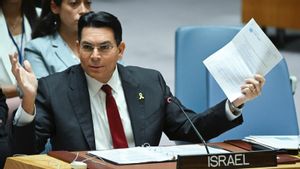JAKARTA - There are more than 1,759 hoax content that has been blocked by the Ministry of Communication and Informatics (Kominfo) from social media in Indonesia. Many of them are in the form of misinformation content related to the COVID-19 vaccine circulating in the public.
The Minister of Communication and Informatics (Menkominfo) Johnny G. Plate revealed that there is a number of information that the public should know about the COVID-19 vaccine, so that there is no loophole of disinformation or hoaxes circulating and becoming polemic. Gradually, Kominfo will provide clear and good socialization of this matter to the public.
First, regarding the number and distribution of vaccines available, it will be given to the whole community in stages. Previously, the government determined that as many as 170 million people or around 60 percent of the total population of Indonesia would receive the COVID-19 vaccine injection. Meanwhile, Indonesia itself needs 340 million doses of the COVID-19 vaccine within a year.
Furthermore, other information that people need to know is medical certification and the halal label for vaccines. According to Johnny, currently the government through MUI, BPOM and WHO has taken the steps that should have been done. MUI will issue a fatwa regarding this matter.
Vaccine certificates both from the medical point of view of BPOM and WHO. The community must be informed that all these stages have been carried out. Currently, MUI halal certificate of vaccine is actively involved in it and later through the related fatwa. Don't get into a polemic.
"Also the price of vaccines, supply and demand for vaccines, don't let vaccination become a problem other than the health goals themselves," said Johnny, as quoted by Antara , Sunday, October 18.
Johnny again reminded the public to remain disciplined in implementing health protocols. According to him, this will happen if there is no transmission of contradictory information to the public that makes them confused. The war against hoaxes related to COVID-19 including in digital media is an important highlight here.
Johnny said, the latest data from the Ministry of Communication and Information shows that there are 1197 disinformation issues spread across four digital platforms, namely Facebook, Twitter, Instagram and YouTube, with a distribution of 2020. Of this 2020 distribution, around 1759 of them have been blocked.
As a handling step, the government through the Ministry of Communication and Information and the police has dropped witnesses to hoax makers and spreaders to contact executive officials of the related social media platforms.
Lung specialist doctor at Pers Friendship Hospital Erlina Burhan admitted hoaxes are often a problem. Where people trust too much false information circulating on social media.
"This hoax is endless, on social media 50 percent of the content is hoax, don't believe it. It's only a thumbs-up, people can make a riot, ”he said.
Erlina gave an example, the impact of this hoax, among others, made COVID-19 patients not want to come to the hospital and this had a negative impact on those who already had comorbidities or comorbidities such as diabetes, hypertension, heart disease and others.
Finally, many of them died at home because they did not get treatment. According to him, people are afraid to come to the hospital for fear of contracting COVID-19. In fact, hospitals can control infection transmission much better than the community.
He acknowledged that COVID-19 information is very dynamic because it is a new disease and health experts including the World Health Organization (WHO) are still studying it. The public is encouraged to seek correct information through official sources regarding COVID-19.
Hoax Information in Society
On the other hand, actually the majority of people are very worried about misleading information related to COVID-19. Findings from the Indonesian Political Indicators released on Sunday showed that 55.7 percent of people said they were very worried, while 24.8 percent were somewhat worried and 12.7 percent said they were extremely worried. Meanwhile, only 5.3 percent of people said they were not too worried and 1 percent did not worry at all.
These results were obtained after the research team collected data from 1200 respondents selected on September 24-September 30 2020. Executive Director of Indonesian Political Indicators, Burhanuddin Muhtadi said, this sample size has a margin of error ( MoE) of around 2.9 percent. at the 95 percent confidence level.
According to Erlina, overcoming misinformation in digital media can not only be through taking down related sources or tracing the figure of the disseminator, but also providing correct education, easy for the public to understand and massive.
This suggestion was responded positively by Minister Johnny who emphasized the importance of dissemination and education to be carried out continuously in all communication media and pentahelix or involving various elements ranging from society, government, academia, entrepreneurs and the media.
He emphasized the government's commitment to side with the people. "I believe that Pak Jokowi really sided with the community. In every discussion, closed meetings, decision-making, the pressure is always to pay attention to our national interests, "Johnny concluded.
The English, Chinese, Japanese, Arabic, and French versions are automatically generated by the AI. So there may still be inaccuracies in translating, please always see Indonesian as our main language. (system supported by DigitalSiber.id)
